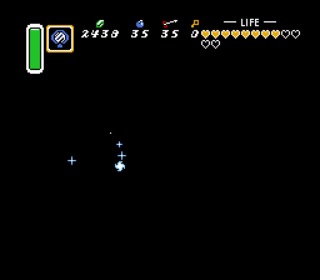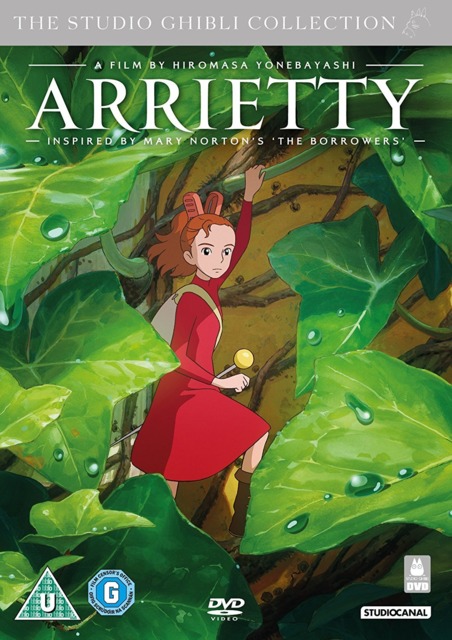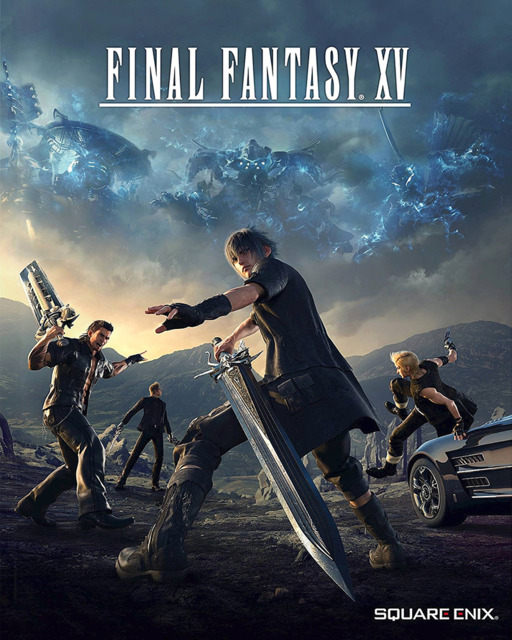Despite some recent... complications, I've been having a great time with the A Link to the Past randomizer playthrough I've been chronicling. It creates new wrinkles to overcome which demand a certain level of intense familiarity with the original game to surpass, and I've been considering other games that might benefit from a similar treatment.

The number one game I'd love to play with randomized loot is the original Dark Souls, but I doubt I'd be able to get it to run in any decent shape on this laptop with integrated graphics. We're probably talking a game-wide version of "Blighttown Troubles". But that seems like the craziest way to play that game: if you can find a really powerful weapon or spell early on, it might motivate you to spec your character completely differently in order to wield it effectively. Finding different key items would push you to take on more difficult bosses first, and you could be lucky enough to find the Estus-boosting Firekeeper Souls in the first few regions of the game or go without for almost the entire length because they spawned in some remote location in the Blighttown Swamps that you didn't feel like trudging your way over to.
Other games in my periphery include Super Metroid, which might make for a more accessible randomizer run sequel, though I think I'd have a lot more trouble trying to remember where everything was (and there's overall less items to randomize). There are the other Zelda games too, like Link's Awakening and the N64 games, and other spacewhippers like Symphony of the Night that might lend itself to an entertaining randomizer run. I've heard tell that there's a few inventive ROM hacks that turn RPGs like Final Fantasy IV and V into what are essentially roguelikes, and I might jump into one of those if ZombiePie ever decides to visit the franchise's 16-bit era for his Final Fantasy retrospective.
Really, though, I'd like to play a few more just to kind of narrow down what makes for a good game for this randomization process. A lot of shuffled progress-vital items seems like the major requirement, as well as a certain flexibility in the structure that would allow for some alternative routing. A secondary trait would be a strong familiarity with the game in question: there's a reason these randomizers spawned from, and are largely catering to, the speedrunner community. At any rate, I've got a number of venues to explore if I wanted to pursue this particular vein of new spins on old classics once Garflink has defeated his porcine nemesis.
No time to think about that now, though, as a certain recurring May feature will be taking most of my attention for the next few weeks. Here's our last quiet period of blogging for a while:
- The Indie Game of the Week for the last week of April was the excellent Snake Pass from last year: a challenging, physics-based platformer built around a character with strict limitations that I somehow didn't hate. Between its genteel presentation, the calming and chill David Wise soundtrack, frequent checkpointing, and a certain intuitiveness to the otherwise unorthodox slithering controls, it turned out to be for more agreeable than most of its ilk. That snake was darn cute too.
- This week saw two editions of The Legend of Zelda: A Link to the Past randomizer run, featuring Garflink. There's a certain undercurrent of desperation in this week's double-bill (links to Episode IV and Episode V), as I take stock of my situation and what I need to access the various dungeons of the game. In true Zelda progression fashion, almost every dungeon in the game requires different items to access, and I have to be fortunate enough to find those items in the wild before I hit that brick wall of having no "next dungeon" to visit. As it stands, it's highly probable that finishing one dungeon will get me the item I need for the next, and so on in a series until I eventually complete the game. It's simply finding that one domino that will knock down the rest. I'm hoping Monday's next episode will bring some momentum back, as I didn't really intend for it to continue past April (May's going to be a little busy). Still - this run is certainly compelling in ways I didn't anticipate, pushing me to think outside the box on several occasions and thoroughly explore the two worlds of Hyrule for the next proverbial breadcrumb.
Right, I suppose I should mention that I picked up the new Artifex Mundi bundle from IndieGala. I don't think I'll be bringing back "Rainy Days and Mundis" after the Randomizer run is over, but I've got a stock of HOPAs on standby in case I conceive of a better feature that incorporates them. For as little as HOPAs tend to innovate, they're surprisingly alluring. I think it's because it boils down what I like most about adventure games - rational inventory puzzles and the occasional brainteaser - but loses a lot of the, let's say, "flavor" that is the humor and characterization and inventiveness of LucasArts, Legend, or Sierra games, or their many contemporary inspirations in the Indie space.
Before we move onto the Addenda, I'm announcing a new May Maturity series starting May 1st. Same plan as last year: I'm creating "intro" and "outro" blogs for each 90s game I attempt to complete, never more than a week apart. I've got another batch of classic CRPGs and graphic adventure games I missed the first time around in what constitutes a balance of (what was then) mainstream as well as a few obscure titles. I'm capping it off with a certain Obsidian sci-fi RPG released in the early 00s that's been on my to-do list for a long time, but only if I complete all six games on my shortlist first. That's going to be my brass ring, though I'll struggle to hit that deadline with all the other ongoing blog features. Next week will see the start of that, as well as the usual Randomizer update, SNES Classic Mk. II entry, and a new Indie Game of the Week.
Addenda
Movie: The Secret World of Arrietty (2010)

After Isao Takahata passed away earlier this month, I considered watching one of his Ghibli movies for this section of the Summaries before realizing that I'd already seen them all. Grave of the Fireflies, Pom Poko, Only Yesterday, My Neighbors the Yamadas, and The Tale of Princess Kaguya are bona fide classics and some of my favorite animated movies, emphasizing Takahata's mastery over emotional moments and his role as the "social conscience" of Studio Ghibli. However, the whole point of this exercise is to watch new movies, not old favorites. If that were the case, I could've filled this segment with all the Nicolas Cage movies Giant Bomb East is putting us through (though I'll take any excuse to watch Con Air or The Rock again). So, instead, I decided to check out a Ghibli movie I'd yet to see and was readily available: The Secret World of Arrietty, or simply Arrietty, an animated adaptation of Mary Norton's The Borrowers.
Ghibli frequently takes its inspiration from literature, especially international literature, but it's rare that they source something I'm familiar with. I've not read the Borrowers books, but there were multiple adaptations of them while I was growing up, including a live-action series on the BBC and a 1990s movie with a mostly British cast. The version of the Ghibli Arrietty I saw also had a British cast - apparently there were two English international versions, and North America saw one mostly populated by Disney teen actors and comedy ringers like Will Arnett and Amy Poehler - and despite the fact the story has been transplanted to Japan (the sick boy Arrietty befriends is named Sho, while his caretaker is named Sadako) the British voices somehow made the film feel more legit? At least in terms of it being a British kid's book adaptation with a British voice cast. Didn't hurt that the cast included a very young (and still British-sounding) Tom Holland, a.k.a. the current Spider-Man, and Saoirse Ronan as Arriety, as well as the distinctive voices of Mark Strong and Olivia Colman as Arriety's concerned parents: all of whom have had some impressive career boosts since 2011, when this dubbed version of the film was released.
As for the movie, I think Ghibli interim director Hiromasa Yonebayashi played it a little safe, settling into the leisurely-paced and luxuriously-animated format that is the Ghibli trademark to tell a traditional story about family and the importance of fighting for survival, albeit with a family of tiny tiny people. Lots of establishing shots of intricately drawn locations, characters who move and act unhurried, living their lives as they always have. When something exciting inevitably happens, it feels as much of a shock to our system as it does to the characters involved, because we're drawn into their routines and all the less dramatic, quieter moments that populate them. It feels most like My Neighbor Totoro, which was less about going on swashbuckling adventures and more about watching these characters acclimitize to some weirdness in their day-to-day lives before a slightly more stressful event towards the end of the movie galvanizes the characters into action. A slow-paced movie like this is not going to be for everyone, especially for younger kids who might otherwise have trouble settling down, but it's rich and charming in a way that only Ghibli can consistently get right. I've yet to see Yonebayashi's subsequent Ghibli movie When Marnie Was There, which is also based on a British children's novel, but I've no doubt it's cut from a similar cloth and will make plans to see it eventually. It's a shame that Yonebayashi left the studio soon after - it doesn't sound like Ghibli's going to produce too many more films, with Hayao Miyazaki constantly retiring (and unretiring) and the death of Takahata - but I'm glad to see he's continuing to direct movies. After Marnie, I'll next watch the movie he produced with Studio Ponoc: Mary and the Witch's Flower.
Game: Final Fantasy XV

This will be my last Final Fantasy XV update. Without giving too much away, I'm at the point of the game where the plot suddenly railroads for the last few chapters, dropping the open world pretense and having the story get a little more serious as Noctis fights to reclaim his kingdom from the Niflheim Empire. I've been noticing more and more "events" happening to the secondary characters which causes them to leave the party for a spell, which even back when the game was new must've seemed very dubious in their DLC-enabling contrivance ("Where did Gladio disappear off to while the rest of the party was doing this dungeon? You'll just have to buy the season pass to find out!").
There are certainly scattered moments - the warping combat, the cooperation attacks, the further streamlining of character progression - when Final Fantasy XV has a resemblance to the bold and experimental Final Fantasies of old, where they were constantly pushing the envelope and trying ideas that other JRPGs had yet to attempt, effectively leading the pack in ingenuity. That's certainly been the case for the first four console generations that Final Fantasy appeared on: Final Fantasy III for the NES invented the before-its-time customizable Job system, Final Fantasy VI had its various isolated scenarios and unique mid-game restructuring, Final Fantasy VII was a worldwide phenomenon with its own trailblazing ideas like the bizarre Materia system and various off-kilter mini-games, and Final Fantasy X ensured that the fledgling PlayStation 2 came out swinging with a focused story that nonetheless carried new ideas like instantaneous switching of party members mid-battle and the elaborate Sphere Grid. Final Fantasy XIII wasn't quite as innovative, though its sequels sure got weird, and Final Fantasy XIV needed a huge reboot before it found its footing and its own sustainable niche in the shrinking MMORPG market. While surprisingly polished given its long and troubled production history, FF15 feels archaic in ways that no former Final Fantasy has, its many current rivals surpassing it in terms of innovation and modern, welcome quality-of-life features. For the first time, it feels like Final Fantasy is the JRPG franchise playing catch up, not the one at the front calling the shots. Playing FFXV compared to the recent Xenoblades or Tales, or even the newest Ys game - a series that, while I love dearly, I'd struggle to call "state of the art" - it's apparent that the JRPG genre has moved beyond it during its long gestation time. Whether that's an unfortunate trait distinct to FFXV and its lengthy development, or an ongoing trend for Final Fantasy as a whole as it continues to fall behind superior franchises that can pre-empt its inventiveness, it's probably too early to say. When Final Fantasy XVI happens, as I'm sure it will, I'm hoping it doesn't quite have the turnaround FFXV does, and can thus recapture the trailblazing reputation of the series.
Despite this plethora of irritations that a more polished open world RPG would've hammered out - like how inconvenient it is to travel at night, or the annoyances caused by running out of gas, or the frequency of mission types like "tail this guy without being seen" or "search around this enormous target area for your objective", and so on - I'm still enjoying the game, as evinced by the fact that I'm now in the late stages after some 60 or so hours and plan to finish off the rest of the trophies and the side-quests once the story's over. It hasn't been an unmitigated failure, which I was half-dreading with the game's cool reputation. It does admittedly feel like the game came a little too late to make as much of a splash as it once might, and despite the lengthy production time is still filled with dozens of little annoyances that are either glitch-related or outmoded game design. It's on the lower end of my overall Final Fantasy rankings as a result, though that's only because the series has had such a consistent high bar; it's definitely not something I regret booting up and giving a chance.
Log in to comment